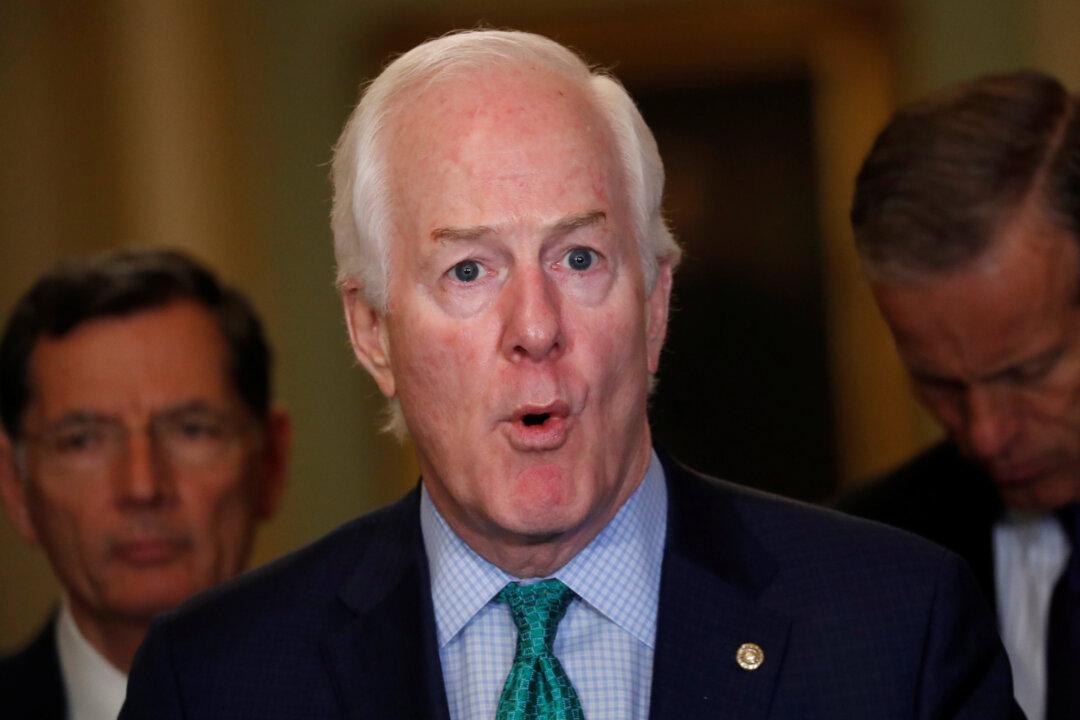WASHINGTON—Senate Republicans and President Donald Trump met on June 5 at the White House to discuss a measure before Congress aimed at tightening investment rules to better protect national security.
Senator John Cornyn (R-TX) has spearheaded efforts in Congress to win passage of a bill to tighten oversight by the inter-agency Committee on Foreign Investment in the United States (CFIUS). The measure, which is aimed at keeping China from acquiring high-end U.S. technology, has been put into a must-pass defense policy bill called the National Defense Authorization Act (NDAA).





